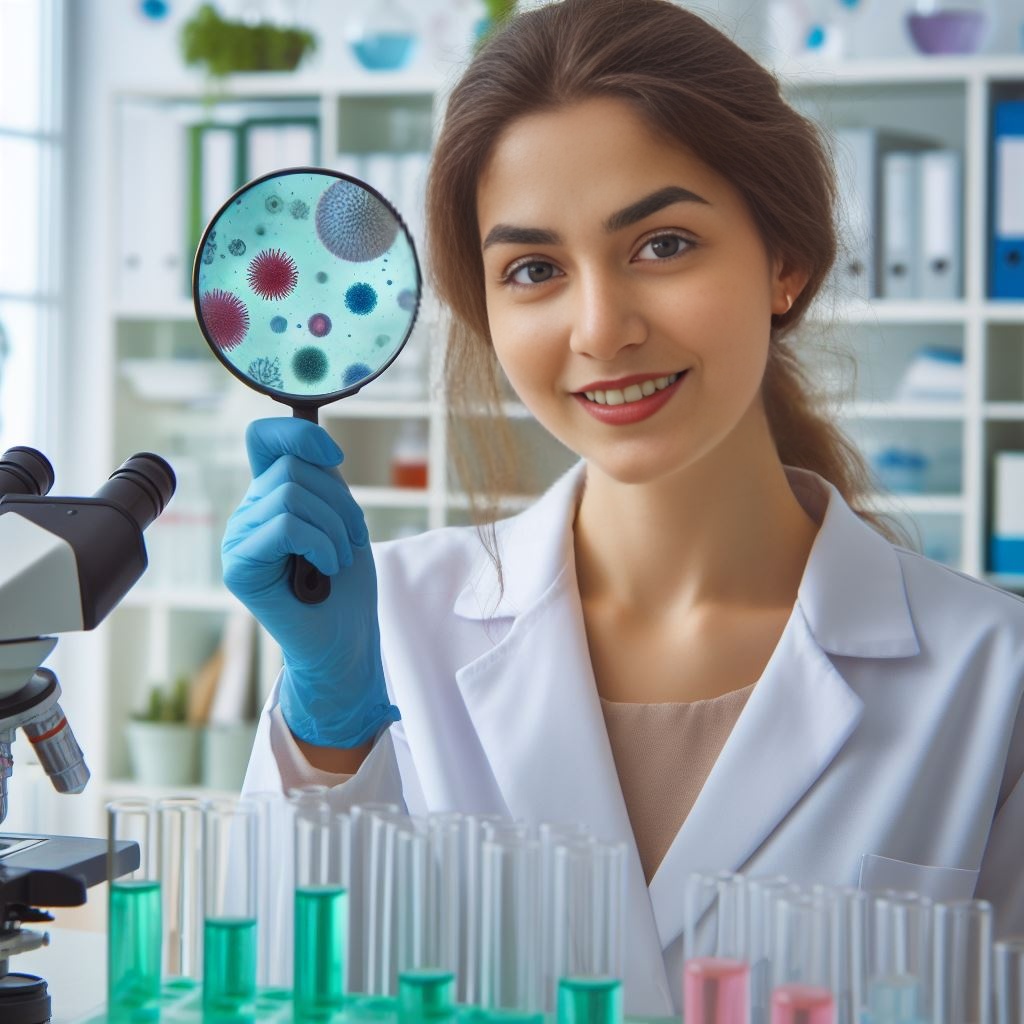A guide for Biotech & Microbiology Aspirants
In the re alm of science and innovation, biotech and microbiology stand as pillars of groundbreaking discoveries and advancements. These fields delve into the intricate workings of living organisms, from the molecular level to complex ecosystems, offering a profound understanding of life itself. At the heart of this academic journey lies a roadmap paved with challenges, opportunities, and unparalleled growth.
alm of science and innovation, biotech and microbiology stand as pillars of groundbreaking discoveries and advancements. These fields delve into the intricate workings of living organisms, from the molecular level to complex ecosystems, offering a profound understanding of life itself. At the heart of this academic journey lies a roadmap paved with challenges, opportunities, and unparalleled growth.
The Importance of Biotech & Microbiology Education
Embarking on a journey in biotechnology and microbiology education is akin to unlocking the door to a world of endless possibilities. These disciplines not only foster a deep appreciation for the complexities of life but also equip individuals with the tools and knowledge needed to tackle real-world problems. From developing life-saving medications to unraveling the mysteries of microbial ecosystems, the impact of biotech and microbiology spans far and wide.
Building a Strong Foundation in Biotech & Microbiology
A solid foundation in the fundamentals is crucial for success in biotech and microbiology courses. Understanding the principles of genetics, cellular biology, and microbial physiology lays the groundwork for more advanced studies. Through hands-on laboratory experiences and interactive lectures, students gain invaluable insights into the inner workings of living organisms.
Embracing Innovation
In the fast-paced world of biotechnology and microbiology, innovation is key. As technology continues to evolve, so too does the field of life sciences. From CRISPR gene editing to next-generation sequencing techniques, staying abreast of the latest advancements is essential for staying ahead of the curve. Biotech and microbiology courses provide students with the opportunity to explore cutting-edge technologies and push the boundaries of scientific discovery.
Navigating the Curriculum
The curriculum for biotech and microbiology courses is designed to provide students with a comprehensive understanding of the subject matter. From introductory courses to specialized electives, students have the opportunity to tailor their education to suit their interests and career goals.
Syllabus Overview
Year 1:
Introduction to Biology: An overview of cellular and molecular biology.
Chemistry for Life Sciences: Fundamentals of organic and inorganic chemistry.
Microbiology Basics: Introduction to microbial structure, function, and diversity.
Biotechnology Fundamentals: Principles of genetic engineering and bioprocessing.
Year 2:
Genetics and Molecular Biology: In-depth study of gene structure, regulation, and expression.
Microbial Physiology: Understanding microbial metabolism, growth, and adaptation.
Bioprocess Engineering: Techniques for scaling up biotechnological processes.
Immunology: Introduction to the immune system and its role in health and disease.
Year 3:
Biostatistics and Bioinformatics: Statistical methods for analyzing biological data.
Industrial Microbiology: Applications of microbiology in pharmaceuticals, food, and environmental industries.
Biomedical Ethics: Ethical considerations in biotechnology and microbiology research and practice.
Research Project: Independent research project under the supervision of faculty.
Eligibility Criteria :-
To enroll in biotech and microbiology courses, candidates typically need to meet the following eligibility criteria:
- Completion of high school education or equivalent with a strong background in science subjects.
- Proficiency in English language (for non-native English speakers, a minimum English proficiency test score may be required).
- Meeting specific grade requirements in science and mathematics subjects, as specified by the institution.
Cultivating Critical Thinking Skills
Critical thinking is at the core of biotech and microbiology education. Students are encouraged to question, analyze, and evaluate scientific concepts from multiple perspectives. By fostering a culture of inquiry and exploration, biotech and microbiology courses empower students to become lifelong learners and innovators.
Practical Applications and Real-World Experience
Beyond the classroom, biotech and microbiology courses offer numerous opportunities for hands-on learning. Internships, research projects, and industry collaborations provide students with real-world experience and insight into potential career paths. Whether working in a laboratory setting or out in the field, these experiences are invaluable for developing practical skills and building professional networks.
The Future of Biotech & Microbiology
As we stand on the cusp of a new era of scientific discovery, the future of biotechnology and microbiology shines bright. From personalized medicine to sustainable agriculture, the potential applications of biotech and microbiology are limitless. By nurturing the next generation of scientists and innovators, biotech and microbiology courses pave the way for a brighter, healthier future for all.
To know more – Visit our website
For admission related queries – Click here or Call us @9997089170
Author:- Antra Das

